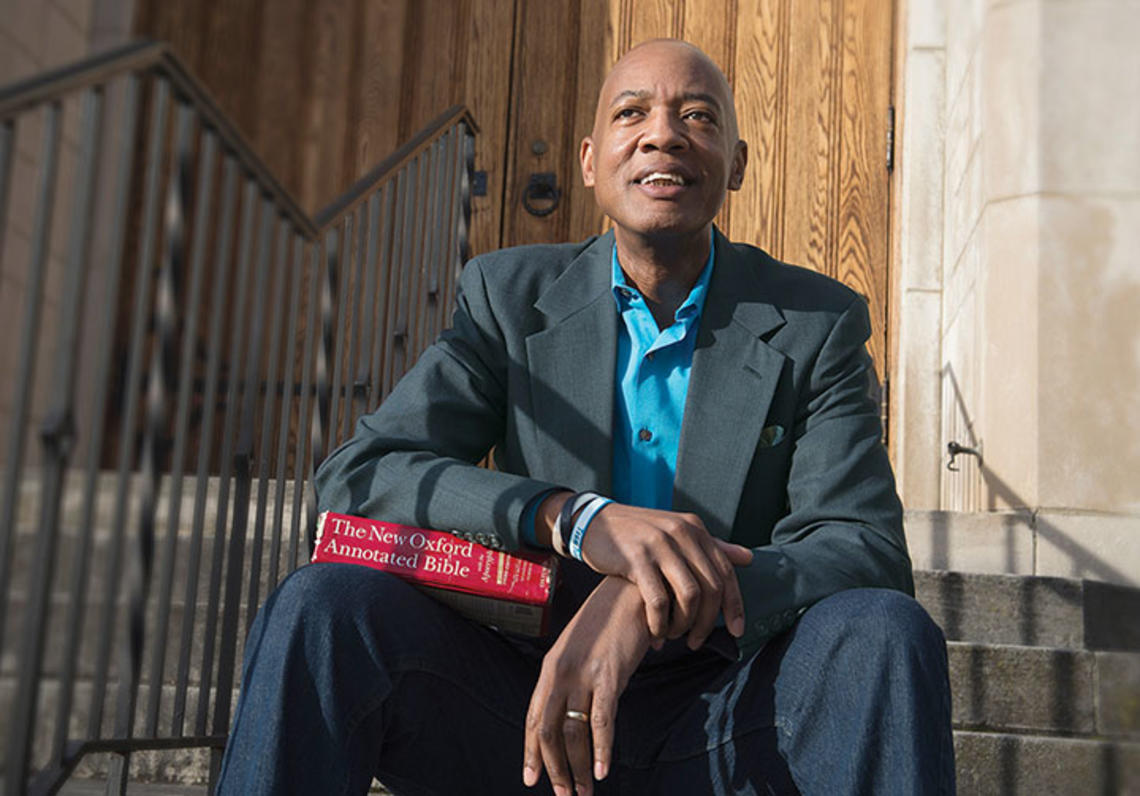Paul Roberts ’85: A New Ministry
The president of a historically black seminary rethinks the training of ministers

For his senior thesis in architecture at Princeton, Paul Roberts ’85 created architectural plans for redesigning a historically African American church. Three decades later, Roberts is engaged in another redesign project as he forges a fresh approach to seminary education.
As president of the Johnson C. Smith Theological Seminary in Atlanta, the only historically black seminary of the Presbyterian Church, Roberts is making the training of ministers more accessible and practical. These days, people are less inclined to uproot their lives to commit to a residential, three-year seminary program, Roberts says. He’s also making the program affordable. “You shouldn’t have to pay up the wazoo to serve the church and the community,” he says. The seminary has had no formal campus since 2014. Courses are offered online and at satellite locations for less than $400 each.
Roberts never planned to work in the church. After Princeton, he moved to New York City and landed a position in advertising, eventually working at several firms in the field for the next decade. But he began to feel a void.
He read stacks of career manuals and started attending church. It was among the pews that he found a home. He and his then-fiancée moved to Atlanta, where Roberts earned a master’s of divinity degree at the seminary he now is reshaping. Both thought his turn to religion as a career “would be a phase, that it would pass,” he says. But for 13 years he has served as minister of a small congregation in Atlanta, and in 2010 he began running the seminary, which currently offers 20 courses and two certificate programs.
One of Roberts’ biggest challenges is addressing the concerns of those who are wary of a non-traditional model for a seminary. But he is undaunted: “I love this time of radical change.”










No responses yet